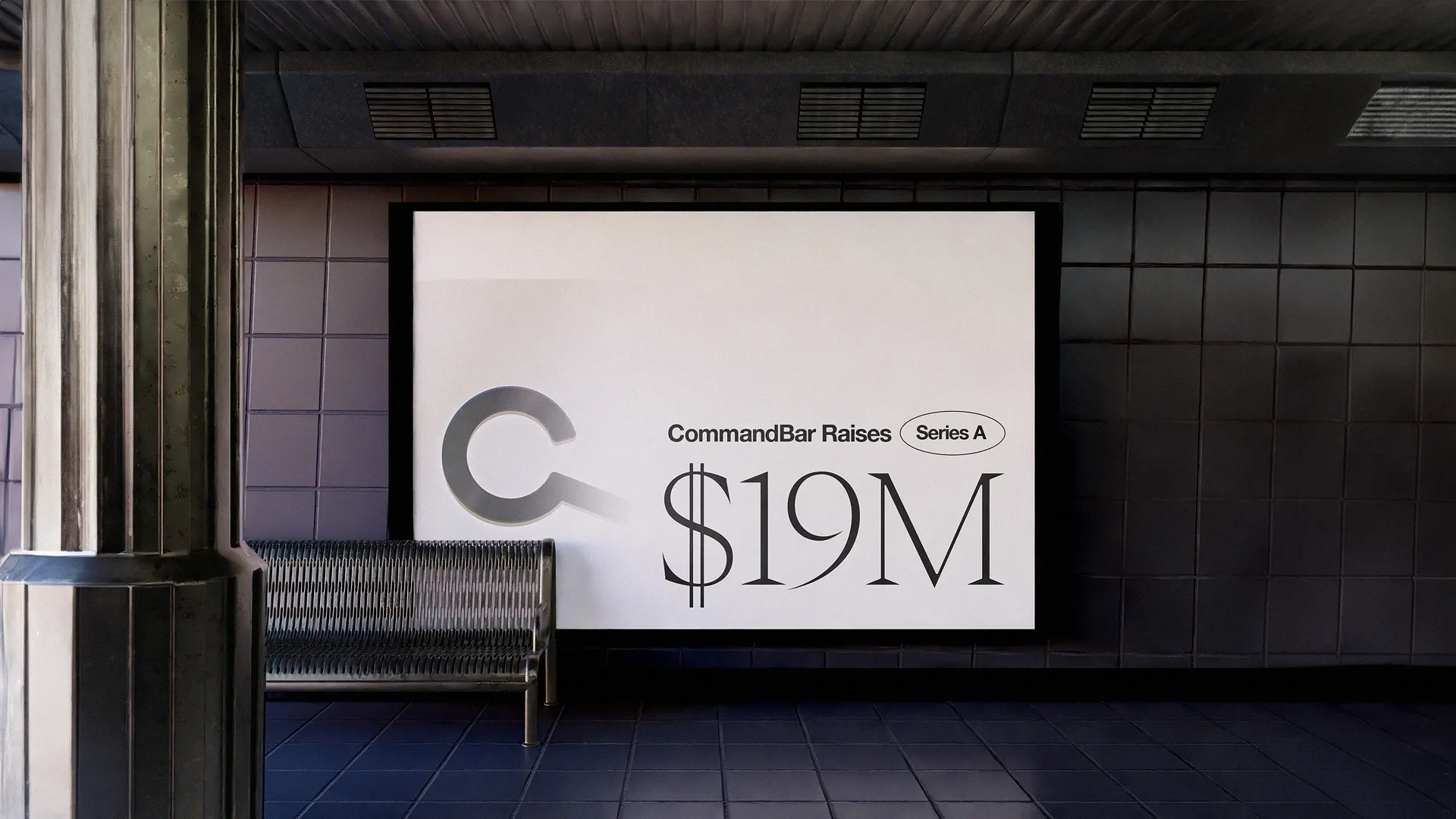At the risk of sounding cringe-y, I like to think that a lot of the good things that have happened in my career so far stem from my decision to apply to YC in 2019. This includes my former co-founder introducing me to James a few years ago and eventually joining CommandBar late last year.
My story of applying to YC is pretty unremarkable. We didn’t have any grand ideas or background to vouch for us. Four friends in their final semester of university who liked working together on stuff. One day we decided that one of those things could turn into a real business so we filled out the application. In hindsight, two things worked in our favor: (1) we were all young, technical people with nothing to lose and (2) we wrote a great, clear application.
The first point is a little more difficult to control, however, anyone can learn to write a great application. Since then, I've read and helped edit countless YC applications. If I’ve learned anything from that it’s that there's no guaranteed secret sauce. You can get in as a solo founder, you can get in pre-product, pre-revenue, and pre-customers. You can get in if you’re not from the Bay Area and don’t have the typical founder background (that was us). There are, however, many things you can do right (and wrong). Hopefully, this story will give you a clear idea of what those are and how you can put them into practice for your own YC application.
This article is inspired by the one James did recently, where he graded CommandBar’s YC application. I recommend you go read that before this to familiarize yourself with the YC application questions (if you haven’t already). This is a general version of what great YC applications should include (and not include).

Last week I shared on LinkedIn what I think the TL;DR (if I had to pick three things) is on writing an outstanding YC application, or more broadly, getting into YC. These are non-starters for any founder/soon-to-be founder.
1. Be determined. Show that even if you don't get into YC, you'll continue working on your idea. Talk to users and customers. Persist in figuring out what works. Show that you’ll change lanes when it doesn't (scout mindset).
2. Have clarity. Both in how you think and how you write.
3. Think big. You could be the most determined person in the world, but if you're looking to build a lifestyle business, YC isn't for you.
The YC app isn't just about your idea - it's also about how you think. For most questions, there's a literal answer and a meta-answer that conveys the types of traits that predict founder success from YC.Here are some DO’s and DON’Ts for your YC application. These should be reflected in all of your YC application questions.
DOs
- Demonstrate obsession. Provide details in your application that show you are the world expert in your idea.
- Demonstrate ambition. Talk about how big your company could be and what the world would look like in that state.
- Demonstrate commitment. How long have you been working on this fulltime? How long have you been working on startups? Why do you need this to succeed?
- Demonstrate your bias for action. Talk about specific problems you've encountered and how you creatively solved them.
- Demonstrate scoutness. Scoutness means you are an information-gathering machine that seeks to disprove your hypotheses about the world. Talk about where you've been wrong before, how you figured it out, where you're current idea could be wrong, and how you're going to prove/disprove it as fast as possible.
- Talk about team dynamics. YC bets on teams and founders, not ideas. If you're applying as a team, show how your team's unique combination of skills and experiences makes you the right group to execute this idea. Highlight projects you’ve worked on together.
To this last point, if you read/watch any resource for YC, you’ll quickly understand how they prefer funding technical founders/teams. I have a few opinions about this (maybe worth a separate LinkedIn post), but the bottom line is I largely agree. This has nothing to do with whether you’ll succeed if you don’t have a technical person on your founding team, it just means it will diminish your chances of getting into YC.
There are exceptions. If you plan on being the exception, you have to prove to them that your plan’s going to work. This could mean a few things:
- You’re going to look for a technical co-founder You’re just so excited about this idea and want to start validating it with real customers (even if it means pre-product) as soon as possible.
- You’ve already built an MVP using some low-code tool. Show that you’re resourceful and even if you don’t write code, you’ve found ways to get your idea off the ground.
- You have deep knowledge/experience of the space you’re building in (i.e. you’re a former pharmacist who’s building an app for the pharmaceutical industry–even though you need technical help to build the app, you know the ins and outs of who your customers are and what they need).
DON’T
- Flaunt your credentials (unless they are hyper-relevant, like a patent or niche domain expertise).
- Oversell fluff (easiest thing to detect in a YC app), things like "10 users committed to using us," "working prototype," etc.
- Obfuscate. Unless you have real revenue, don't talk about how much people "are going" to pay. Unless you have users, don't talk about how many users you plan to have in a month (unless you have a very specific plan to get there).
- Overlook your GTM plans. Avoid focusing solely on the technical/product side. Many first time founders make the mistake of not thinking about distribution enough. This means they build and build and build with 0 users/people to try their product. It’s why YC obsesses so much over the idea of launching ASAP. “Built it and they will come” is a myth.
Details you should always include
- Revenue
- Usage (especially retention)
- Tactics/unfair advantages you used to get users
- Previous jobs/roles that demonstrate commitment and ambition (but only a sentence or two
Things you should avoid talking about:
- LOIs
- Degrees
- "Committed users"
- "Small % of a big TAM"
Finally, remember–not getting into YC does not equal failure. Most huge companies out there succeeded without. It is, however, probably the greatest startup network out there, full of smart, motivated people.
We share more of CommandBar’s post-YC journey / series A company shenanigans over here.
Take a look at James’ post on Grading CommandBar’s YC application and going through each of our YC applications questions/answers.
And finally, if you, too, hate annoying pop-ups, check out CommandBar and why we’re crazy.















